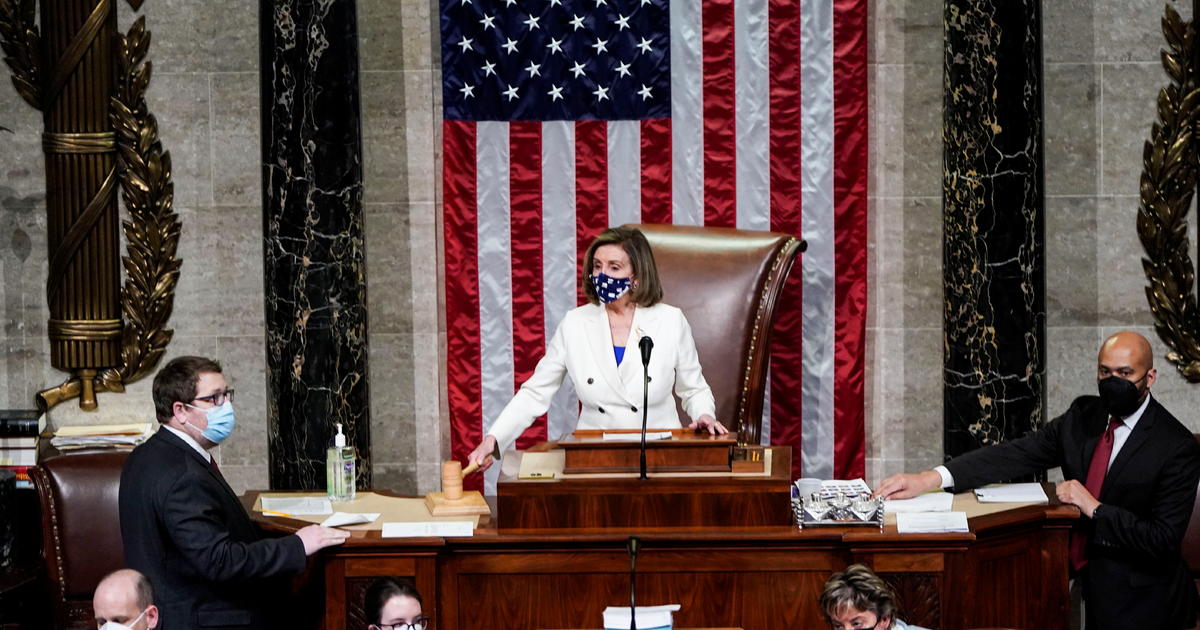
Washington – The House on Wednesday voted to reauthorize the Violence Against Women Act (VAWA), the 1994 law that strengthened protections against domestic violence against women.
The House approved the reauthorization by a vote of 244 to 172 votes, with 29 Republicans joining all Democrats to vote for it. But the measure, which expired two years ago, could lead to a blockade in the divided Senate.
VAWA enshrines legal protections for women who have experienced domestic and sexual violence. It was initially passed in 1994, defended by then-Senator Joe Biden, and was updated and reauthorized in 2000, 2005, and 2013. The bill expired in late 2018 due to a government shutdown and was renew briefly by a government reopening resolution. , but expired again in February 2019. Mr. Biden re-authorized VAWA a key campaign promise before he was elected.
The White House Office of Management and Budget issued a statement on Wednesday stating that “the administration strongly supports” the reauthorization of VAWA.
“VAWA reauthorization is more urgent than ever, especially when the pandemic and economic crisis have only further increased the risks of abuse and safety barriers for women in the United States,” the statement said. “The administration is pleased that HR 1620 recognizes the need to provide protection and services to all victims of abuse and includes proposals to strengthen existing policies that were supported by both Democrats and Republicans last year. The Administration urges the speedy passage of this legislation. “
The current bill will expand services to victims and re-authorize subsidy programs for the criminal justice response to domestic and sexual violence. It also includes provisions that would expand housing options for survivors and end the immunity of perpetrators of non-indigenous sexual violence in tribal lands.
The so-called “boyfriend gap” would also be closed to prevent couples and harassers convicted of domestic violence or abuse from buying and owning firearms. Earlier versions of the bill already prevented spouses convicted of domestic violence or abuse from obtaining firearms.
The House passed a version of VAWA that included this amendment in 2019, but died in the Senate, which was then controlled by Republicans. Some Republican lawmakers opposed this part of the bill, arguing it was too broad. Republicans also objected to provisions that would have expanded protections against LGBTQ people and undocumented immigrant victims.
In 2019, the bill received the support of 33 Republicans in the House and the current version is sponsored by Republican Congressman Brian Fitzpatrick.
“Historically, Congress has reauthorized VAWA with a broad, bipartisan agreement, and I look forward to working alongside my colleagues to ensure that VAWA continues to protect victims and survivors across the nation,” Fitzpatrick said in a statement when introduced the bill earlier this month.
However, it is unclear whether VAWA will be able to get enough support in the Senate. Democrats have a narrow majority of 50 seats and most legislation requires 60 votes to advance to the Senate. Democrats will need the support of at least ten Republicans for the bill to move forward.
GOP Senator Joni Ernst, who introduced a different VAWA reauthorization bill in 2019 that did not have the support to pass in the Senate, told reporters Tuesday that he would re-introduce his own version of VAWA. She added that fellow Republican senator Lisa Murkowski was collaborating with her on portions related to the protection of women in tribal lands.
“What we hope to show is that we have enough Republican support in our bill and that we are willing to work with Democrats in that regard, and we hope that by combining forces we can reach the 60 votes needed and pass a good modernized bill. that will work for the Senate, hopefully for the House, ”Ernst said.
Murkowski told reporters Tuesday that VAWA had previously been “derailed” because of the provision that closed the “boyfriend’s gap.”
“I think it’s very important that we move VAWA forward,” he said.
The House also passed a resolution on Wednesday that removes the deadline for ratifying the amendment of equal rights. The resolution was passed largely on the party line with a vote of 222 to 204 and four Republicans who joined all Democrats in support of the measure.
During the pre-vote debate, Democratic Rep. Jackie Speier, a sponsor of the bill, cited Supreme Court Judge Antonin Scalia.
“Antonin Scalia, the great jurist, once said, the Constitution requires discrimination on the basis of sex? The answer is no. But if the question is, does the Constitution prohibit discrimination on the basis of sex? The answer is also no. Creepy feeling in each of we that in the United States Constitution women are not protected, ”Speier said. “There can be no equality expiration date.”
An identical resolution has been introduced by Democratic Sen. Ben Cardin and Murkowski in the Senate. The initial deadline was 1979 and was extended until 1982. No new state voted to ratify the amendment until 2017, when it was passed by Nevada. The amendment was ratified by Illinois in 2018 and Virginia in 2020.
Although the ERA reached the threshold of 38 states to be adopted with the ratification of Virginia, the Justice Department headed by former Attorney General William Barr issued an opinion in early 2020 stating that the ratifications of the three states they did not count as they occurred after the deadline.
The House passed a bill in 2020 to remove the deadline, but it quickly stalled in the Senate, as then-Senate Majority Leader Mitch McConnell refused to take it to a vote by ballot.
Murkowski told reporters Tuesday that he did not believe the resolution had enough Republican votes to pass it.
“In modifying equal rights, I wish I could tell you that at this time we had more Republican support for that. We continue to work on that,” Murkowski said.